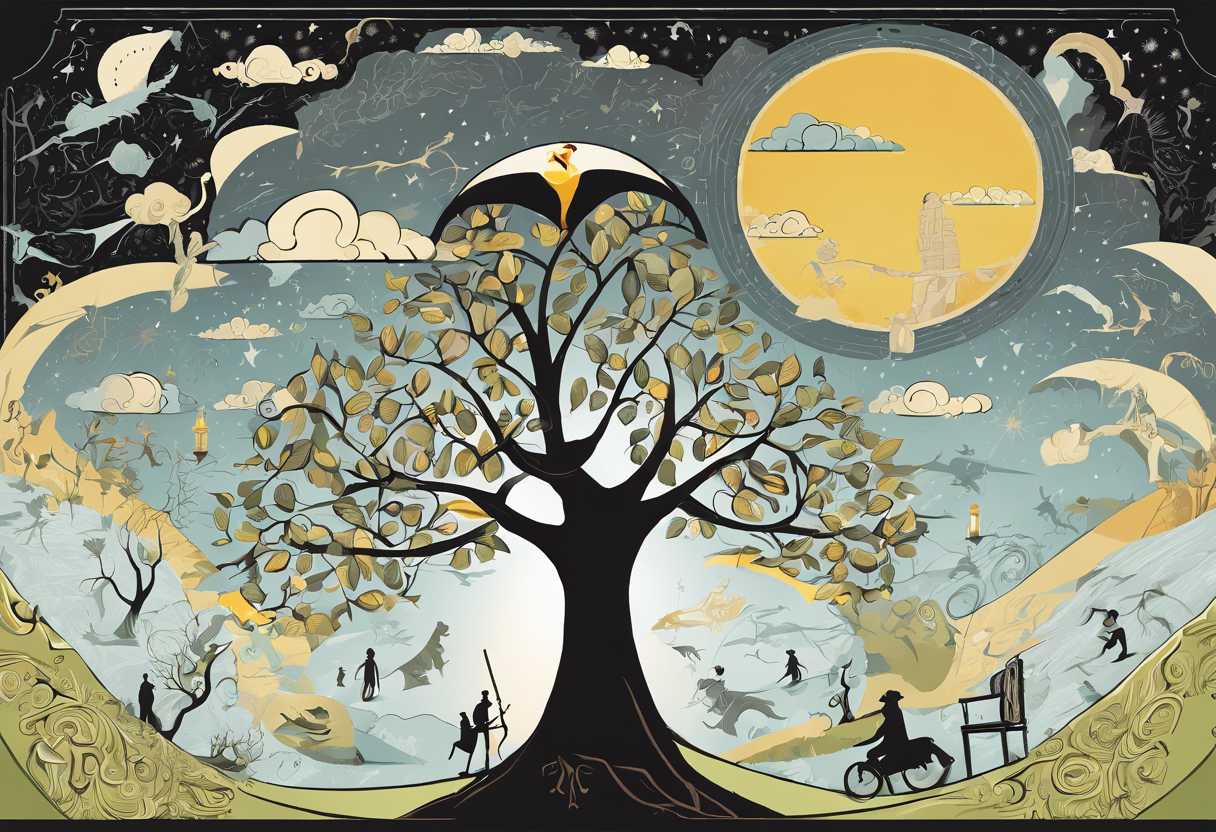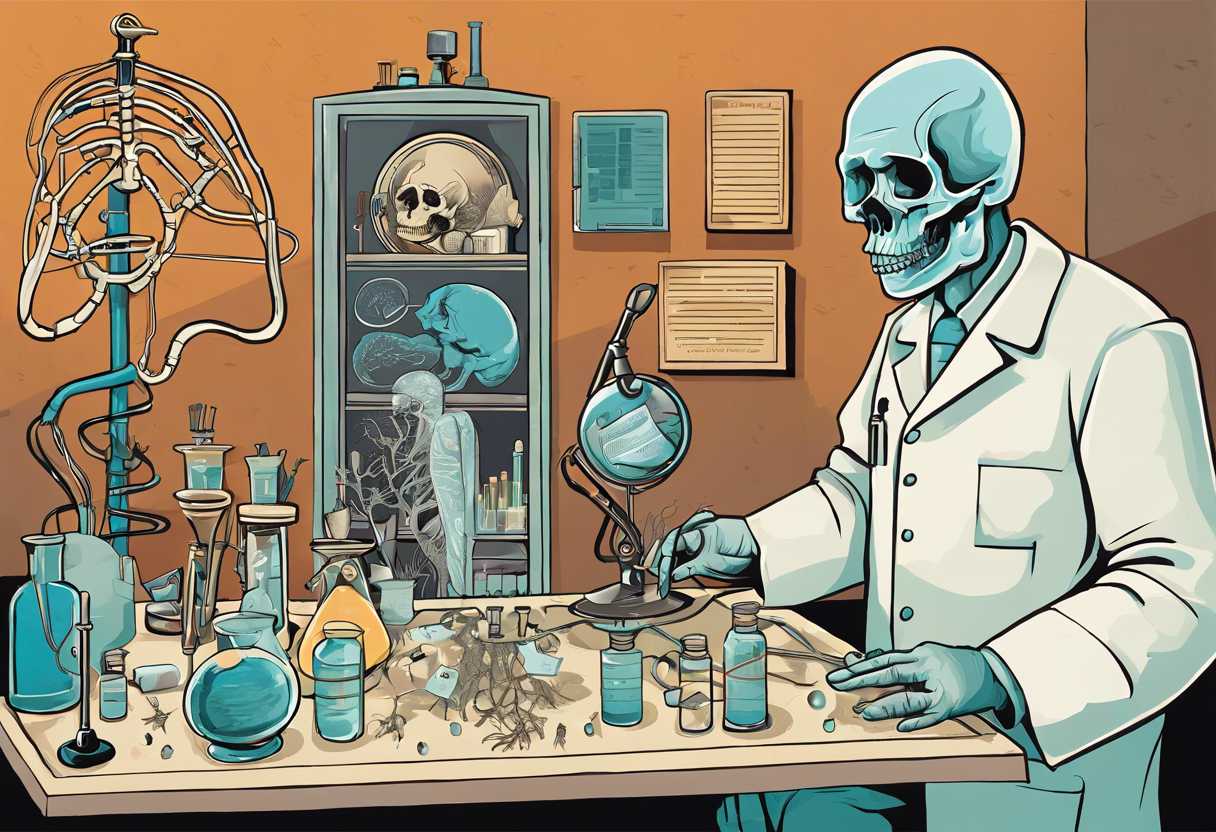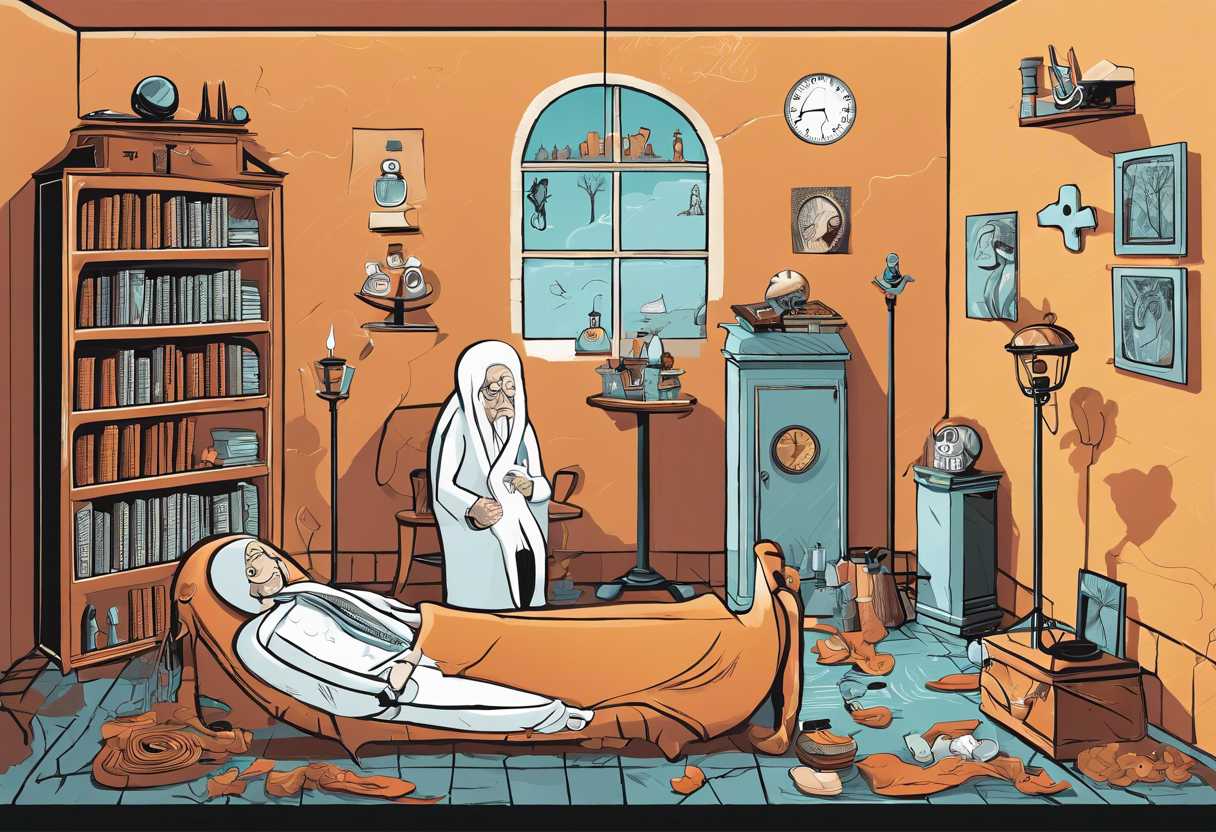Have you ever wondered what really happens after we die? It’s a question that has intrigued and perplexed humanity for centuries, leading to a wide range of theories, beliefs, and perspectives on the afterlife. In this blog post, we will delve into the fascinating topic of life after death, exploring different theories and beliefs, examining scientific insights, and delving into cultural and religious perspectives on the afterlife. We will also take a moment for personal reflections, contemplating the mystery of what happens after we die. Join us as we embark on a thought-provoking journey to explore the enigmatic realm of the afterlife.
Exploring the Afterlife: What Do You Think Really Happens After We Die?
Theories and Beliefs
There are countless theories and beliefs about what happens after we die. Some people believe in an afterlife, where the soul continues on in some form. Others believe in reincarnation, where the soul is reborn into a new body. Still, others believe that death is the end, and there is nothing beyond it. These beliefs are often shaped by religious, cultural, and personal experiences, and can vary widely from person to person.
Near-Death Experiences
One fascinating area of study related to the afterlife is near-death experiences (NDEs). These are experiences reported by people who have been close to death, such as during a medical emergency or accident. Many NDEs involve similar elements, such as a feeling of peace, seeing a bright light, and encountering deceased loved ones. While these experiences are not universally accepted as evidence of an afterlife, they have sparked much debate and research into the nature of consciousness and what happens after death.
Scientific Perspectives
From a scientific standpoint, the question of what happens after we die is a complex and controversial one. Some researchers study the biological processes of death and the decomposition of the body, while others explore the nature of consciousness and the possibility of an afterlife from a more metaphysical perspective. While there is no definitive scientific evidence for an afterlife, the topic continues to be of interest to many in the scientific community.

Theories and Beliefs: Different Perspectives on Life After Death
Religious Perspectives
Religious beliefs play a significant role in shaping people’s perspectives on life after death. For example, Christianity teaches that those who accept Jesus Christ as their savior will have eternal life in heaven, while those who do not will face eternal damnation. Similarly, in Islam, the concept of an afterlife is central to the faith, with the Quran describing paradise and hell in great detail. Hinduism, on the other hand, believes in reincarnation, where the soul is reborn into a new body after death based on its karma in previous lives. These diverse religious perspectives offer a wide range of beliefs about what happens after death, each with its own unique traditions and practices.
Scientific and Philosophical Perspectives
From a scientific and philosophical standpoint, the concept of life after death is often met with skepticism and debate. While some argue that consciousness ceases to exist after death, others propose theories such as the multiverse hypothesis or the idea of a collective consciousness. Philosophers have also delved into the concept of an afterlife, exploring questions of morality, existence, and the nature of the soul. These perspectives offer a more analytical and critical approach to the topic, challenging traditional beliefs and prompting deeper reflection on the nature of life and death.
Cultural and Folklore Perspectives
Across different cultures and folklore traditions, there are a myriad of beliefs and stories surrounding life after death. From ancient myths and legends to modern urban legends, these cultural perspectives often reflect the values and fears of a society. For example, the concept of ghosts and spirits is prevalent in many cultures, with various rituals and customs aimed at honoring and appeasing the deceased. In some cultures, there are also beliefs in supernatural realms or underworlds where the souls of the departed reside. These cultural perspectives offer a rich tapestry of diverse beliefs and traditions related to the afterlife.

Scientific Insights: Examining the Possibilities of What Happens After Death
The Brain and Consciousness
One of the most intriguing aspects of the question of what happens after death is the relationship between the brain and consciousness. While some believe that consciousness ceases to exist after death, others argue that there may be a possibility of some form of consciousness continuing beyond the physical body. Recent studies have shown that the brain remains active for a short period after clinical death, raising questions about the nature of consciousness and its potential continuation after the body has expired.
Near-Death Experiences
Near-death experiences (NDEs) have been a subject of fascination and debate for decades. These experiences often involve individuals reporting a range of phenomena, including feelings of peace, seeing a bright light, and encountering deceased loved ones. While skeptics argue that NDEs can be explained by physiological and psychological factors, some researchers suggest that these experiences may provide insights into what happens after death. Studies have shown that NDEs can have a profound impact on individuals, leading to a shift in their beliefs about the afterlife and the nature of consciousness.
Quantum Physics and the Afterlife
Advancements in quantum physics have led to new perspectives on the nature of reality, including the possibility of an afterlife. Some scientists propose that quantum mechanics may offer a framework for understanding phenomena such as consciousness and the continuation of existence after death. The concept of non-local consciousness, where consciousness is not confined to the physical body, has gained attention in the scientific community. While the idea of an afterlife from a quantum perspective remains speculative, it opens up new avenues for exploring the nature of existence beyond death.
Cultural and Religious Perspectives: How Different Traditions View the Afterlife
Christianity: Heaven, Hell, and Purgatory
In Christianity, the afterlife is often viewed as a continuation of the soul’s journey. Those who have lived a righteous life are believed to go to heaven, where they will be in the presence of God for eternity. On the other hand, those who have led a sinful life may be condemned to hell. Some Christian denominations also believe in purgatory, a temporary state of purification for souls who are not yet ready for heaven.
Buddhism: Reincarnation and Nirvana
In Buddhism, the concept of the afterlife is closely tied to the idea of reincarnation. It is believed that individuals are reborn into new lives based on their karma, or the consequences of their actions in previous lives. The ultimate goal is to achieve enlightenment and break free from the cycle of rebirth, reaching a state of Nirvana where suffering ceases.
Islam: Paradise and Hellfire
In Islam, the afterlife is described in vivid detail in the Quran. Those who have lived a righteous life and followed the teachings of Islam are promised paradise, where they will be rewarded with eternal bliss. Conversely, those who have rejected the faith or lived a sinful life may face punishment in hellfire. The concept of the afterlife is a central tenet of Islamic belief and is often a source of motivation for adherents to live a pious life.
Personal Reflections: Contemplating the Mystery of What Happens After We Die
The Existence of an Afterlife
Many people have pondered the question of what happens after we die. Some believe in the existence of an afterlife, where the soul continues to exist in another realm. This belief is often rooted in religious or spiritual teachings that offer the promise of an eternal existence beyond the physical body. Others are more skeptical, viewing the concept of an afterlife as a comforting myth rather than a tangible reality.
Near-Death Experiences
One phenomenon that has sparked intense debate on the topic of life after death is near-death experiences (NDEs). These are reported instances where individuals have been clinically dead or close to death and claim to have had profound and transformative experiences. While skeptics argue that NDEs can be explained by physiological and psychological factors, proponents see them as evidence of an afterlife, suggesting that consciousness can exist independently of the body.
Philosophical and Ethical Implications
Contemplating the mystery of what happens after we die also raises profound philosophical and ethical questions. If there is an afterlife, what implications does this have for how we live our lives? How does the prospect of an afterlife influence our understanding of mortality and the value of human existence? These are complex and deeply personal questions that have been explored by thinkers throughout history, shaping our understanding of the human experience.
Conclusion
Exploring the topic of what happens after we die has led us on a journey through various theories, beliefs, scientific insights, cultural and religious perspectives, and personal reflections. It is a topic that has fascinated humanity for centuries, and while we may never have a definitive answer, the exploration itself has been enlightening.
From the diverse range of beliefs and perspectives, it is clear that the question of what happens after death is deeply personal and often tied to cultural, religious, and philosophical beliefs. While some find comfort in the idea of an afterlife, others find solace in the scientific exploration of consciousness and the unknown.
Regardless of our individual beliefs, the contemplation of what happens after we die serves as a reminder of the preciousness of life and the importance of living with purpose and meaning. It encourages us to cherish the present moment and to seek understanding and connection with others.
As we conclude this exploration, we invite you to continue pondering the mystery of life after death and to engage in meaningful conversations with others. Whether it is through personal reflection, philosophical inquiry, or spiritual exploration, the question of what happens after we die will continue to inspire curiosity and contemplation for generations to come.
Thank you for joining us on this thought-provoking journey. We hope it has sparked new insights and perspectives on the profound question of what really happens after we die.

